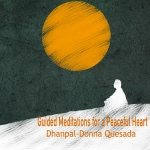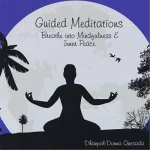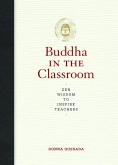Sometimes I receive notes from people I don’t know. Sometimes they ask me for advice, and sometimes I’m able to give it. Here is an (edited) version of a recent one.
Question from an unknown friend:
I have always read about “letting go…” and specifically about letting go of the ego. Isn’t this the purpose of Yoga and Buddhist practice? I think it sounds good but I wonder if it is healthy overall to let go of so much in life. Isn’t part of life just feeling good and acting upon emotions? Isn’t that part of a fulfilled life to accept those feelings? How do I know when I should allow feelings and emotions to exhibit themselves or not? I struggle with this immensely. I almost feel like ego is me and therefore only death would detach me from any thread of ego attachment. When I have an opinion – am I just supposed to suppress it? Thank you for your time.
————
My response:
Friend:
You said: ” Is not part of life just feeling and acting upon emotions? Isn’t that part of a fulfilled life to accept those feelings?”
Wouldn’t it be wonderful if someone could tell you, “Yes, you’re right, I guess that’s what life is for.” But I can’t be the one. You see, this very idea is what Yoga (and Buddhist practice) is there to correct.
The whole purpose of “having a practice” is to steady the mind. Yoga is about the mind, not the body. It is about managing your energy, your emotions and your thoughts, so that those emotions don’t manage and overwhelm you. It’s therefore about you managing you.
Imagine if we took your question (in quotes, above) and made it universal, which is to say, allowed for society at large to act on it as a sort of “rule.” The result would be exactly like the fourth grade school yard, where anytime anyone gets angry, they just stomp and scream and throw their toys at others. After all, they would simply be “acting on their emotions.”
But, here’s the thing. Society is actually like that. Most people have not learned to manage their emotions, have not evolved to where life is about anything other than their passing feelings, nor have they come to identify with any higher purpose of existence.
It’s all about “how I feel.”
And so, we have road rage, prozac, addictions, dysfunctional relationships, war, hatred, envy, eating disorders, sleeping disorders, emotional disorders, a never-before-seen number of learning disabilities, stress, tension, and political elections that resemble an afternoon at the local kindergarten.
When body, spirit and mind are in a state of balance, which is to say, at the very least, that the “negative mind” doesn’t govern, those emotions don’t seem so overwhelming and living becomes more peaceful. What does this have to do with “letting go?” We stop getting so caught up with those habitual thoughts that only keep us limited—judgment thoughts, self-deprecating thoughts, doubtful thoughts and resentful thoughts—the kinds of thoughts we don’t want to characterize our ideas of ourselves and others. Because our thoughts weave the fabric of who we are.
It’s as Yogi Bhajan once said, in his characteristically straightforward and slightly mischievous way, “it’s not emotions that prove you’re alive. The way to find that out is to check your nose. If the breath goes in and out, then you are still alive.”
You see, once we begin to quiet the spinning mind, once we begin to relate to that which is infinitely greater than our passing trifles, once we begin to become truly conscious beings, then we relate to those emotions differently. We learn not to define ourselves by them and they begin to lose their hold and power over us. We become more stable and more able!
Kind Wishes,
~Donna










